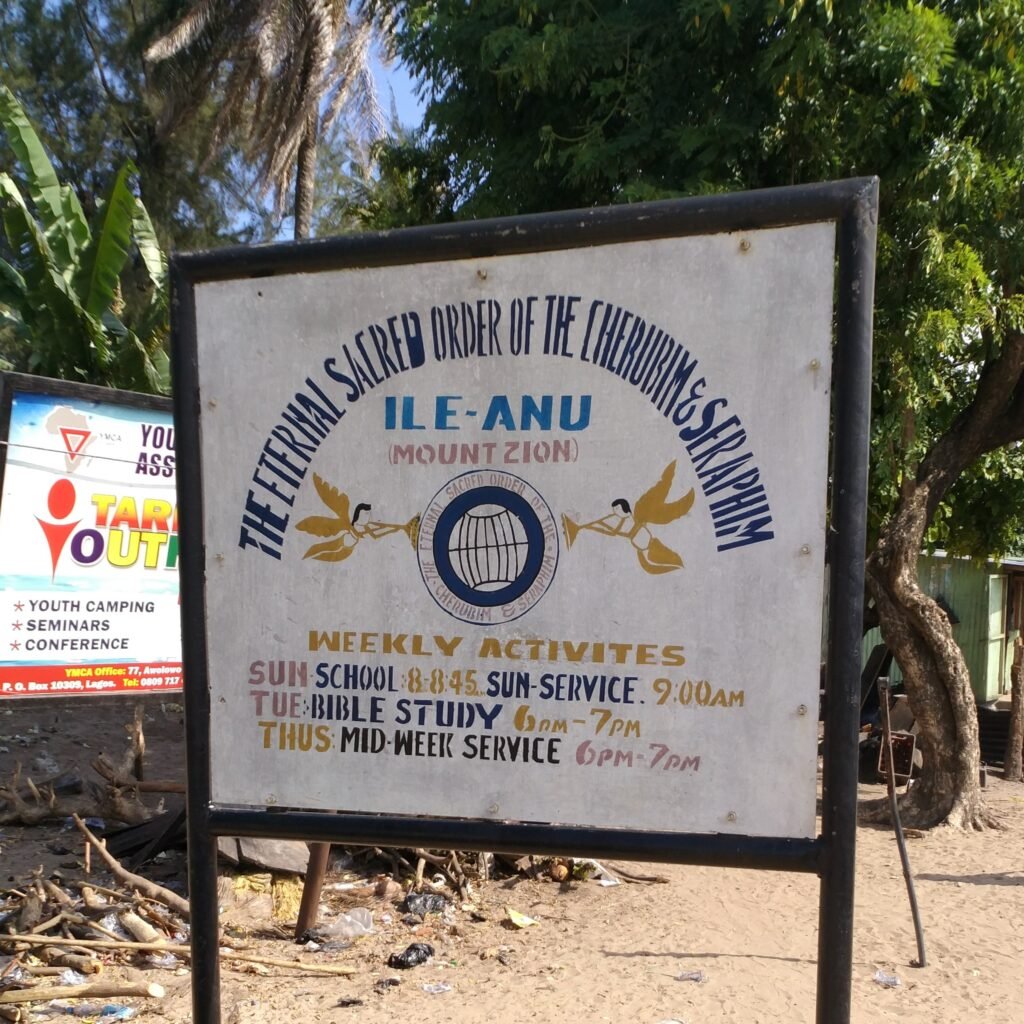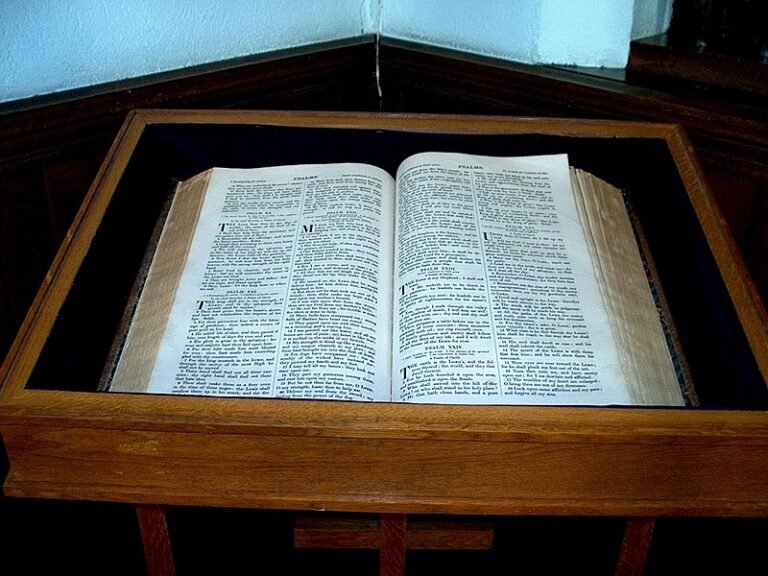I ATTENDED A SERVICE OF A NIGERIAN PROSPERITY GOSPEL CHURCH. WAS IT FUN?
15 min. read about my visit to Naija, to Naija’s one of the largest prosperity-preaching denominations, and about all confused thoughts it caused. Read and donate to receive blessings today!

This land takes it to another level.
The Landscape of Prosperity
The first thing I see after leaving the Abuja airport is a huge billboard with a white, blue-eyed Jesus informing us that He was the Way, the Truth, and the Life. Soon more follows along our way: ‘Night of Word and Wonders: 9pm till dawn’ – with a photo of a dressed up minister and his pretty wife. ‘Experience KOINONIA’ – a photo of a minister holding crutches in his hand stretched up. ‘I Turn Small Shots Into Big Shots in a Short Time’ – a photo of a minister who turns small shots into big shots in a short time, together with a few logos and keywords so we know it is actually Christian, ‘The Healing Church For All Nations – elaborate church names are a thing and each of them should finish with ‘Nations’ or ‘International’. You’d swear they are AI generated, but I swear I’d seen them before AI was invented.
As we keep going, more of those emerge. ‘It’s a tight competition here,’ says my wife from the backseat. There’s a somehow smaller and more humble billboard: ‘God Has Power to Do This and That’ with the name and the address of church where God does This and That’s. There are posters and stickers on cars – and they are almost exclusively about blessings, miracles and miraculous blessings.

Huge show-like gatherings are common and I’ve seen videos of ‘miracles’: a man in an open coffin is carried in by the crew, the minister prays his prayers and commands his commands ‘in the name of Jesussss!’ follows a few times and bang! – another resurrection completed. ‘Were you blind before?’ – asks a miracle-worker on the stage – ‘Yes, I was’. ‘Were you completely blind since you were born?’ – ‘Yes I was’. ‘Can you see now?’ – ‘Yes, I can!’. ‘What colour is that?’ – ‘Blue!!!’ – goes a popular joke. Most people make fun of it, but too many still buy the miracles swindle.
Even the traditional denominations had to partially conform to the expectations – a Catholic wall calendar proclaims ‘My year of miracles and wonders’. ‘It is hard to find a church where prosperity and money aren’t the main topic’ – says my sister-in-law – ‘You can only hope for one where it is mixed with something else’. She used to attend a Catholic church for some time. Was it any different? ‘Maybe they were a bit subtler about it. They would fundraise for different things weekly. They would say they need, let’s say, ten people to donate ten thousand naira, and wait for ten members to stand up and go to the front’. ‘Did they promise any blessings and returns for that?’ ‘Of course!’ she’s surprised I even asked.
Groups which grow on rejecting such teachings seem to just employ the negative version of the same thinking: ‘Think about all the mishaps in your life. Are they results of you neglecting the Great Commission?’ – asks me a holiness movement’s flyer. Young people use social media post photos and reels, posed, full make-up, good clothes with descriptions such as ‘Jesus is my strength’, ‘I’m blessed in the name of God’, ‘Nothing is impossible for those who believe’ and all that jazz from the zone where motivational meets religious and bragging meets faith.
The Winners’ Chapel
I take an opportunity and on a Sunday morning I march to the largest church in our area – and one belonging to one of the largest denominations in Nigeria: Living Faith Church Worldwide. I checked them online before: the sub-site ‘About us’ was about nothing but the founder, David O. Oyedepo – the story of his calling through a heavenly vision, a list of his titles, achievements and numbers of seats in ‘sanctuaries’ he’s built (50 000 in the largest so far and one doubling that under construction). The place in Abuja is definitely more humble than that and has to hold 3 services in the morning to accommodate all comers. In the parking I pass by a car with a church sticker plastered in the central point of a crack-web in the windshield – it pictures Oyedepo and reads ‘I’m a Winner’. It makes all the sense when I get to the main building: The Winners’ Chapel.
Maybe the internet info hasn’t been updated, maybe it’s the cultural difference in time-keeping – when I enter late, the previous service is only about to end. It is a good party: bass, beat, dance. Loud! I can’t say I don’t feel a good vibe as the crowded hall shouts and sings in unity. When the music stops, the pastor blesses his people for the coming week. Instead of the Catholic, known to me, ‘Go in the peace of Christ’ and ‘Be blessed in the name of the Father, the Son and the Holy Spirit’, he breaks demonic curses and proclaims healing and all possible blessing of heaven: ‘You’ll get the promotion you’ve been waiting for, the job you’ve been praying for! They will call you from the president!’ Loud ‘Amen!’ follows. ‘They will call you from the government’ – ‘Amen!’, ‘They will call you from the abroad! – another nearly spasmodic ‘Amen!!!’. ‘In a 24 hours time, 48 hours time, 72 hours time, you will be sharing a testimony of how the illness that has followed you for years has been taken away!’.
How do you respond every week with all this ‘Amens!’ without suffering any cognitive dissonance? Because, I’m afraid, no one from the president will call anyone here tomorrow, the same way they didn’t call you last week and never. Do you just not give it a thought at all, or do you really hope that maybe this time it is going to work; maybe you’ve finally produced and accumulated enough faith to make it happen?
Many, many blessings!
When the sermon starts, it quickly gets disturbing: all stock verses are used in the context of financial prosperity and success. From the prayer of Jabesh, Isaiah 54:3 (‘You’ll spread left and right…’), Jeremiah 29:11 (‘I know my thoughts I think towards you….’), to Romans 8:31 (‘If God is for us, who is against us?’). The main topic is praise. Ostensibly. It really is about how to get monies by being persistent in praising God. To simplify it: you have to praise him and believe He’s got His blessings for you, until the blessings come, no matter what the actual circumstances are. ‘Maybe now you’d be satisfied by a salary in thousands, but you have to set your perspective on millions!’. ‘Amen!’ raised fists shake in the air. ‘There is a person here, your account has been empty for a long time, but this week it will be filled!’. ‘Amen!’. ‘Salvation is a spiritual transaction!’.
Right. I see an older woman, visibly ill, getting up and slowly carrying her shrunk and twisted body towards the exit. ‘In the midst of scarcity there will be abundance for you!’ – shouts the preacher – ‘Everyone is appointed by God! Maybe you are appointed for business? Maybe for career?’. I’ve heard enough. I follow the lady limping out of the place.
The Two Stories
There are two narrations about African Christianity. The first mixes idealistic naivety with the colonial myth of the noble savage – it talks about people who are ‘just spiritual’ because of their culture untouched by Western rationalism, and who are so poor, that their only hope is God’s intervention – and that allegedly produces pure ‘simple faith’, which results in many ‘great miracles’ unheard of in the West. I’ve heard this one being spoken of in Europe by people who ‘knew a missionary’ or who had served their two weeks as voluntourists at some orphanage in Uganda.
The second narration, the down-to-earth, perhaps a bit cynical one, acknowledges some people’s poverty, desperation and gullibility, while blaming the prosperity gospel pundits for exploiting it by faking miracles and preaching ‘sowing seeds’ (give me your money to show your faith, God will multiply it and give it back to you). Unfortunately or not, the second one seems much closer to reality, and the majority of Africans I’ve spoken with, many of them believers, hold the same opinion. Christianity is a business here, at least as much as it is in the US; it mixes with politics, fame and power. Though it’s definitely not the whole picture of it, it is the loud and scandalous one which gives the church bad press and an ugly face.
While I clearly don’t enjoy the manipulative, prosperity-focused Christianity, I don’t know what the alternative to it would be like: Islam? What kind of it? Or maybe elevating the traditional beliefs and shaping it into a ‘religion’, like what we now refer to as ‘Hinduism’ was named and shaped to fit in the Western categories. How would that one go? I know I’m an outsider here; I know I see it from the perspective of my background. I do bring examples of extremes, some of them funny to our ears, some outrageous, many of them both.
The good, the bad, and the agnostic space between.
I do not claim to show the full picture. Yes, there are the private jets-flying ministers whose wealth was built on the hope and naivety of the poor and desperate, the evangelical superstars, fake miracles-performing charlatans, the narcissistic leaders of whose abuses and crimes we are yet to hear. There is a full set of prosperity gospel abominations. I can easily imagine a Richard Dawkins’ disciple looking at it with contempt and painting a vision of how much better off this country would be without these. The picture of prosperity without gospel, instead of the prosperity gospel. Heavily simplified thinking. Burn, my dawkinsian strawman! Let’s look for nuance.
Anywhere here you can find classics such as ‘Rich Dad Poor Dad’, ‘How to Win Friends and Influence People’ or ‘The Intelligent Investor’ for sale between kola nuts, bananas and fake Balenciaga flip-flops. It’s crazy how the highly individualistic, egocentric Western self-improvement ideas found a way and grew roots here, in the traditionally collectivist culture. I imagine it wasn’t brought here in one package together with Christianity. It must’ve landed independently, and the similar form of faith followed. Or maybe the spiritual practises supposed to bring you luck, wealth and health resemble and imitate some pre-Christian rituals? Maybe it will need more time for the culture to be deeply transformed? I can not pretend I know answers here, but as much as I want to criticise all of this, I believe it at least adds some moral edge to the run for success, power and money.

Isn’t it our story too?
‘The religions (…) which have aligned themselves with individualistic values have thrived, while those that have not often withered’ – authors of ‘The Narcissism Epidemic’ in the chapter on religion describe the U.S. landscape, but in our globalised world there’s a fair chance we can use their insights for Nigeria. They go on explaining how churches first adjusted to the egocentric expectations, but then nevertheless preach some of their core ancient values of humility, forgiveness, community and submission to something bigger than the self. ‘It’s a bit of narcissistic jujitsu; the promise of having their narcissistic needs met brings people into an organization, but their individual narcissism is ultimately reduced by the organisation’ – they claim, probably confusing the martial art of jujitsu, which can be rather violent, with aikido – one based on using aggressors’ strength to turn it against themselves. ‘This odd bit of alchemy – taking narcissism and trying to turn it into altruism – is at the hearth of much modern religion’.
Another thing that all these blessing and prosperity teachings give people is hope for a positive change in circumstances which are – without going into painful details – tough. It motivates them to be proactive in pursuing it. Yes, God is in control, but there’s no fatalism in it. How He exercises His control will depend on you. Simple logic follows: He loves you, He wants you to be healthy, wealthy and successful. Life isn’t so much about some inevitable karma or the Islamic ‘inshallah’ and faithful submission to whatever happens. This, at least, can be a good thing.
I could go further and wonder how much the ideas of ‘good’ and ‘moral’ have been changed here in the last centuries. I guess we’d find some parallels to how the ancient Greco-Roman world, which praised bare power and had little but contempt for victimhood, has been changed into one where sanctuaries were built for martyrs, and later where movements like #MeToo could emerge. If the exploitative Christian culture is judged by people here, isn’t it still judged by the Christian standards?
We could dive into how churches provide safe and supportive communities for masses of young people migrating into cities to look for better career opportunities, how they bring together people across ethnic identities, how they help those in need.
The Final Bit
I could go on, but here I have to stop and admit that I’m just a guest here; a guessing guest gliding on the surface. I lack the knowledge and expertise to dig deeper into the local reality.
I can instead dig deeper into what is closer to me: my own faith journey, my own Western experience of contemporary Christianity. Into the good, the bad and the ugly. The friends around: those whose lives were literally saved by faith, and those who escaped its traps by losing it. Into theologies we were spoon-fed and churches serving them – their blessings and abuses, victories and tragedies, good intentions and bad mistakes.

‘Because God honours the personhood of the free agents he has created, he must work to bring about change by means of influence rather than coercion. And this requires God to accommodate a great many false beliefs and inhumane practices as he patiently works to move people toward his goal for them.’ – writes Greg Boyd in his book ‘The Crucifixion of the Warrior God’. He believes Jesus on the cross did just that: ‘He was stooping out of love to bear the sins of his people, thereby taking on an appearance that reflects their sin more than it accurately reflects his true, sinless nature.’ – Boyd explains mostly why we find ‘difficult’ passages in the Bible, especially in the Old Testament: the images of an angry, brutal God, the slaughter of the Canaanite cities, the genocidal commands – just to name a few. The same argument can be used to talk about the state of Christianity – now, and in the last two millenniums; in Africa, in the West, anywhere. God accommodates our limitations and weakness to change us from within. It is a mixed bag, or, in words of someone who was better at metaphors, a field full of wheat and tares.
Of course it doesn’t mean we should accept every perversion of faith as ‘God accommodating our limited understanding and sinful nature’; it doesn’t mean we should only look for positives and ignore the rest because we’re God’s work in progress. Where is the line between acceptable and not acceptable, where is the line between ‘imperfect, yet striving towards good’ and ‘evil, but sprinkled with some truth for appearances’? I don’t know if there is a clear line, and it would be arrogant beyond imagination to claim I could define it once and for good. Yet I believe we are here to struggle with these questions, to try to condemn evils, iron imperfections, elevate what is good and to let Him work in us and through us more efficiently. To be wrong and to be corrected. This is all I attempt to do on this blog.
quotations from:
Gregory A. Boyd: The Crucifixion of the Warrior God
Jean M. Twenge, W. Keith Campbell: The Narcissism Epidemic



